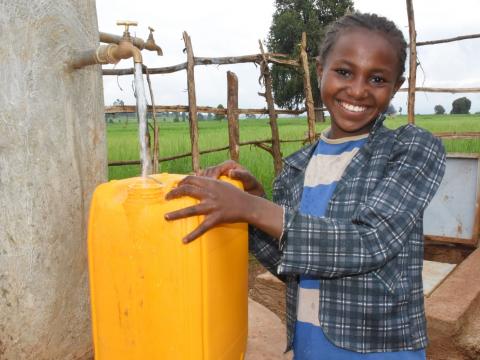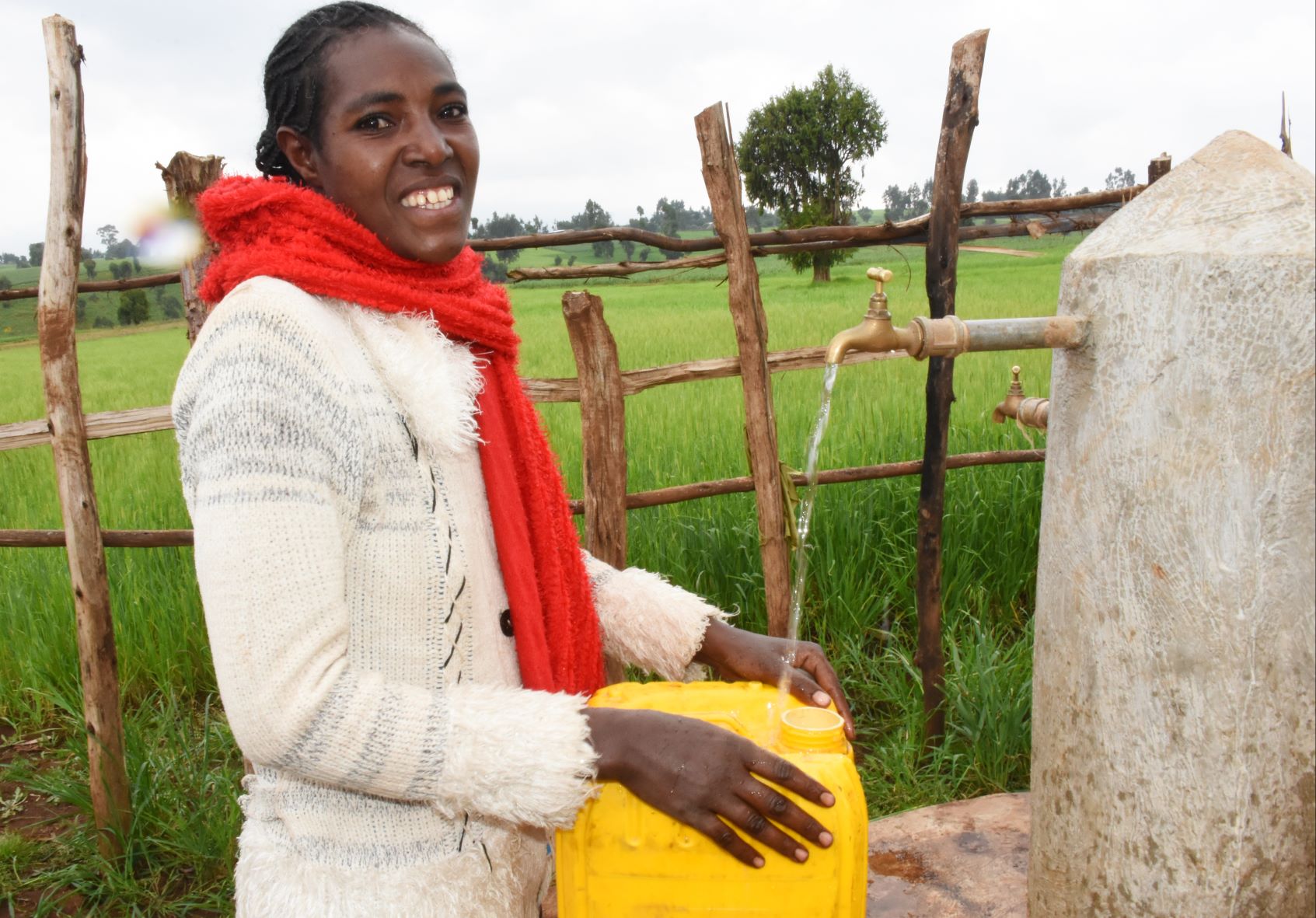Water arrives in Negewo village – A critical asset in times of COVID -19

Residents of Digelu Bora village of Digeluna Tijo District (Oromia Region), had nothing but the Negewo River as a source of water for drinking and daily cleaning chores for a very long time. Waking up early in the morning, trekking for an hour and then queuing for at least half an hour to get the unclean water was a daily cumbersome task for Chaltu (27); a mother of three.

“I lived with the challenge for a long time and I almost got used to the physical challenge. But my children getting sick every now and then was painful.” says Chaltu. “Illnesses like diarrhoea and stomach ache were quite frequent, and I had to take my children to the health centre for treatments. But the new disease [COVID -19] we’re hearing about is quite different and scary without water and hygiene; I am not sure if the doctors even have treatments for that.”
Thousands of women like Chaltu bear the burden of fetching water from the Negewo River, with them and their families exposed to illnesses. When they have the money after sales of their produce, typically wheat and barley, they get to have clean water from another village, paying 16 Birr (about US 40 Cents) for a jerrycan of water –about 20 litres. The water is brought to them by local herdsmen, carried on the back of donkeys.
When World Vision drilled a new shallow well this year and handed it over to the community, people in the village expressed joy and relief. Chaltu’s daughter Gadisse (11) is one of them. “My mother is relieved of the challenges. I get to drink clean water, wash my hands frequently, and my sisters and myself enjoy better health. We don’t get sick.” she says. “We haven’t heard anyone who died of Corona[virus]. But we understand that we still need to wash our hands and keep ourselves clean to prevent the disease. We have the water point just three minutes away from our house.”
The new water point in this village is one of the several water wells drilled by World Vision's Digeluna Tijo Area Programme team. The water points have not just contributed to an increase in the coverage of clean water in the district as part of the initiative aimed at attaining universal WASH coverage in the district. More importantly, water points put in place in the villages of the district have become a critical element in the protection of community members against COVID-19.
“Thank God for World Vision and the Government who made sure that we have water at this serious time when our health is threatened [by COVID-19].” says Chaltu.
World Vision installed 29 water points, developed four springs, and has undertaken pipeline extensions reaching 6,500 people with clean water, among whom 4,100 are children.
---
Story and Pictures: Yosef Tiruneh - Water, Sanitation and Hygiene (WASH) Reports and Communications Coordinator